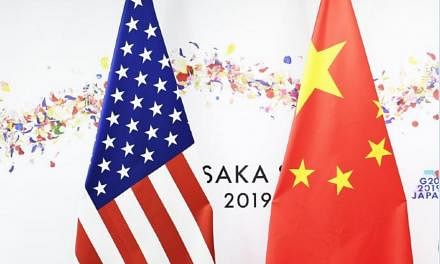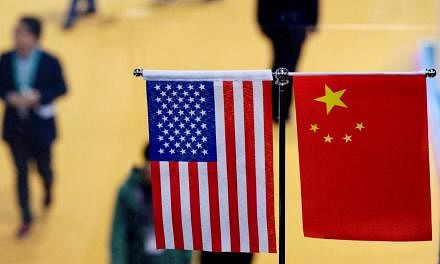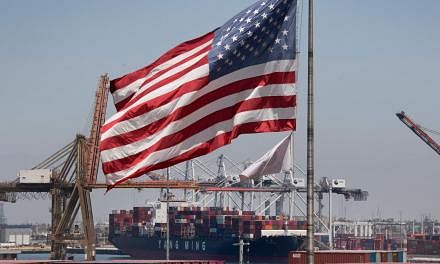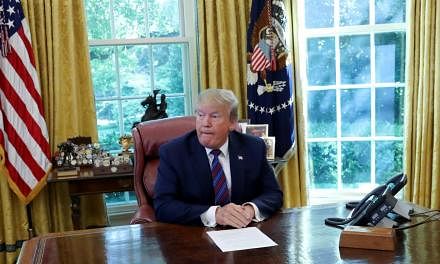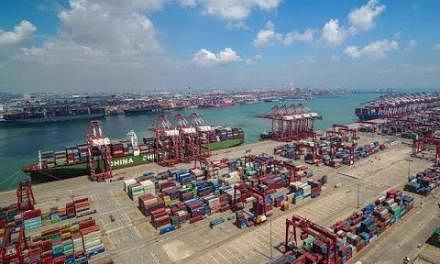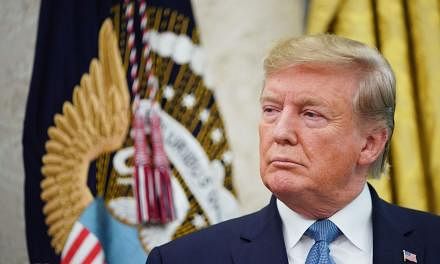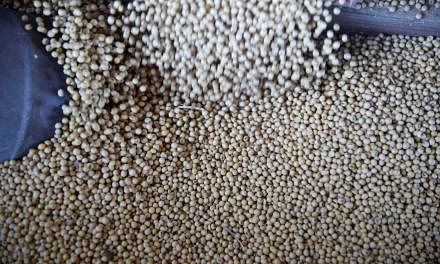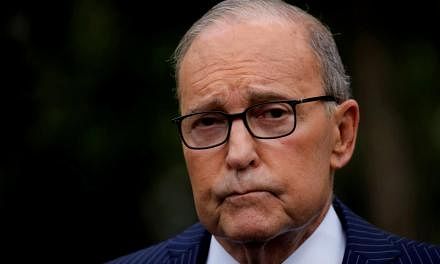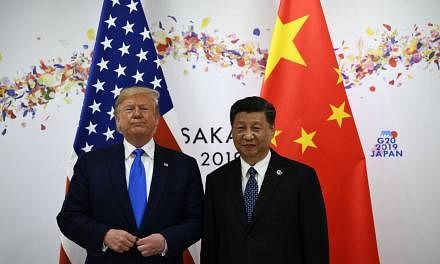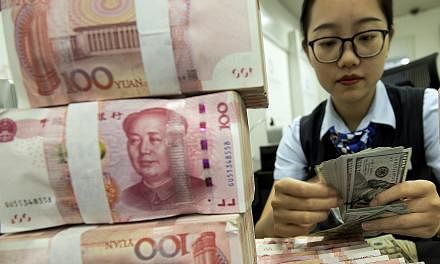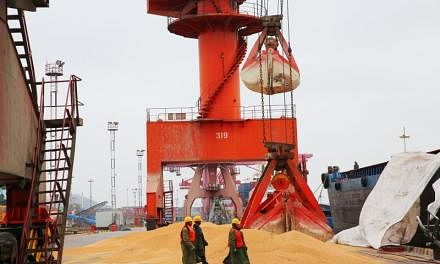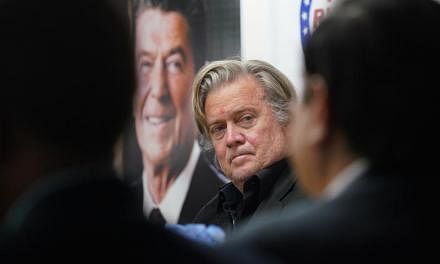WASHINGTON • The US Commerce Department has submitted draft recommendations to the White House on its investigation into whether to impose tariffs of up to 25 per cent on imported cars and parts on national security grounds, two administration officials said.
The "Section 232" recommendations on ensuring a healthy US car industry are undergoing an inter-agency review process and were due to be discussed yesterday at a regularly scheduled weekly meeting of the Trump administration's top trade officials, the officials said.
The White House has pledged not to move forward with imposing tariffs on the European Union or Japan as long as it is making constructive progress in trade talks.
The EU's Trade Commissioner, Ms Cecilia Malmstrom, is due to meet with US Trade Representative Robert Lighthizer in Washington today for more preliminary talks to launch trade negotiations.
One of the officials, who was briefed on the matter, said the administration was sending a message that it is growing frustrated with the lack of progress on auto issues but did not expect immediate action on the recommendations yesterday.
The substance of the recommendations, such as which vehicles or parts could be subject to tariffs, and possible tariff rates, were not immediately known.
-
US, China said to have resumed trade talks
-
WASHINGTON • US Treasury Secretary Steven Mnuchin and Chinese Vice-Premier Liu He have reportedly resumed talks on trade, and a potential Washington visit by Mr Liu is being considered before top leaders of both countries meet later this month.
The two officials spoke on the telephone last Friday, according to people briefed on the matter, who asked not to be named. The conversation did not yield any concrete results, said the sources.
The South China Morning Post reported yesterday that Mr Liu was "expected" to visit Washington shortly. The Wall Street Journal first reported the telephone call on Monday.
The telephone discussion followed a call between President Donald Trump and China's Mr Xi Jinping two weeks ago - the first publicly disclosed call in six months. The two leaders are slated to meet at the Group of 20 nations summit in Argentina, scheduled from Nov 30 to Dec 1.
US-China talks have made little progress since May, when Mr Trump put a stop to a deal that would have seen China buy more energy and agricultural goods to narrow the trade deficit.
In Beijing, Mr Trump's move was seen as an insult to Mr Xi, who sent Mr Liu - his top economic policy official - to Washington for the negotiations, and cemented a view that Mr Trump's real goal was to thwart China's rise.
"We are willing to negotiate with the US," Chinese Premier Li Keqiang said in Singapore yesterday, adding that the talks should be carried out on the basis of mutual respect, balance and good faith.
China's Foreign Ministry did not immediately respond to a faxed request for comment on the call.
BLOOMBERG
But having the Commerce report ready for action would underscore a consistent threat from United States President Donald Trump - that he would impose tariffs on cars and car parts unless the EU and Japan make trade concessions including lowering the EU's 10 per cent tariff on imported vehicles and cutting non-tariff barriers.
Mr Trump has repeatedly suggested he would move quickly to impose tariffs, even before the Commerce Department launched its investigation in May into whether imported cars and parts pose a national security risk. The study followed closely on the heels of the imposition of similar national security tariffs on steel and aluminium.
"We said if we don't negotiate something fair, then we have tremendous retribution, which we don't want to use, but we have tremendous powers," Mr Trump said last week. "We have to - including cars. Cars is the big one. And you know what we're talking about with respect to cars and tariffs on cars."
Last month, the administration said it would open formal trade talks with the EU and Japan early next year after the 90-day required congressional notification period ends.
The prospect of tariffs of 25 per cent on imported cars and parts has sent shockwaves through the auto industry, with both US and foreign-brand producers lobbying against it.
A group representing major carmakers told Commerce in July that imposing tariffs of 25 per cent on imported cars and parts would raise the cumulative prices for US vehicles by US$83 billion (S$115 billion) annually and cost hundreds of thousands of jobs.
Carmakers argue there is no evidence that car imports pose a national security risk, and the tariffs could actually harm US economic security.
The Alliance of Automobile Manufacturers, whose members include General Motors, Volkswagen and Toyota Motor, warned that the price of an imported car would increase nearly US$6,000, while the price of a US-built car would increase by US$2,000.
A study released by a US car dealer group warned that the tariffs could cut US car sales by two million vehicles annually and cost more than 117,000 car dealer jobs, or about 10 per cent of the workforce.
REUTERS
